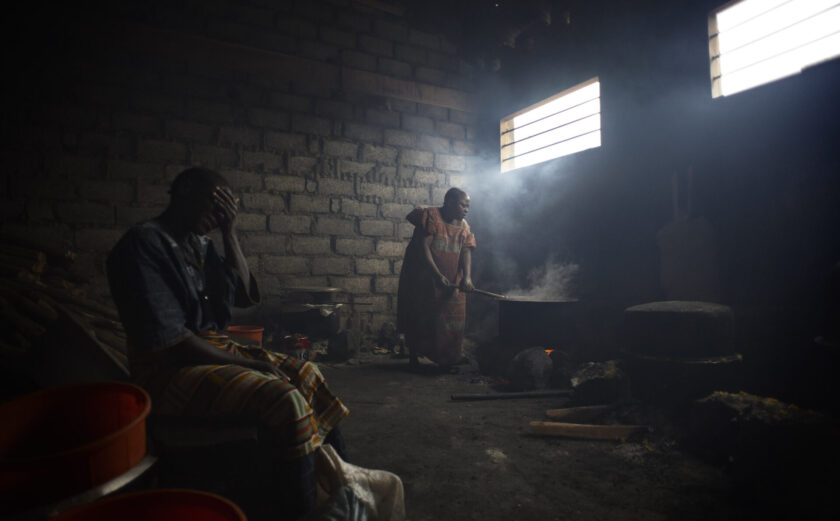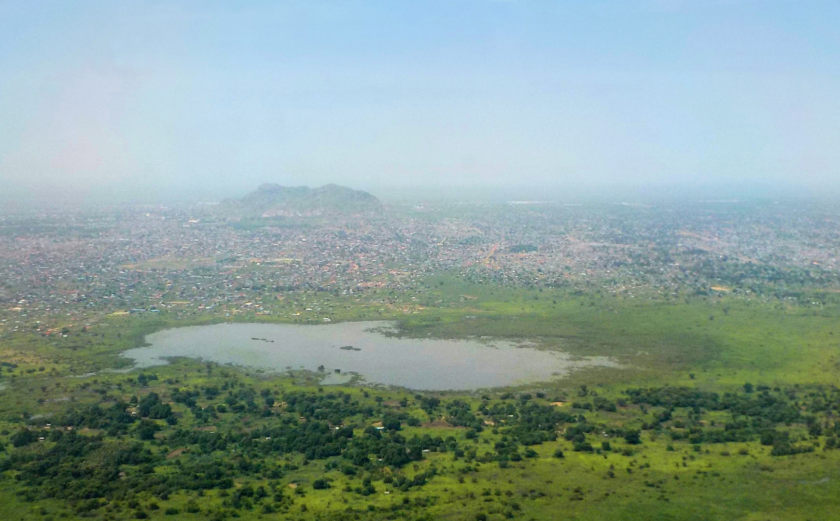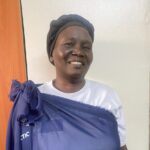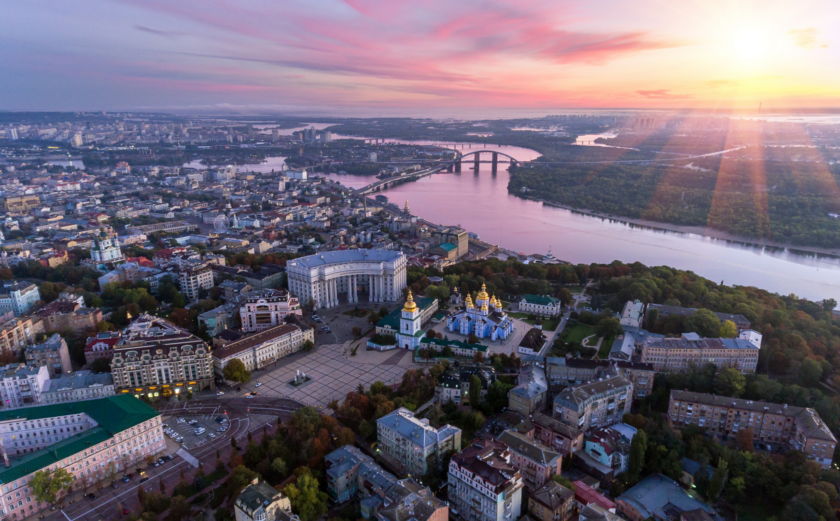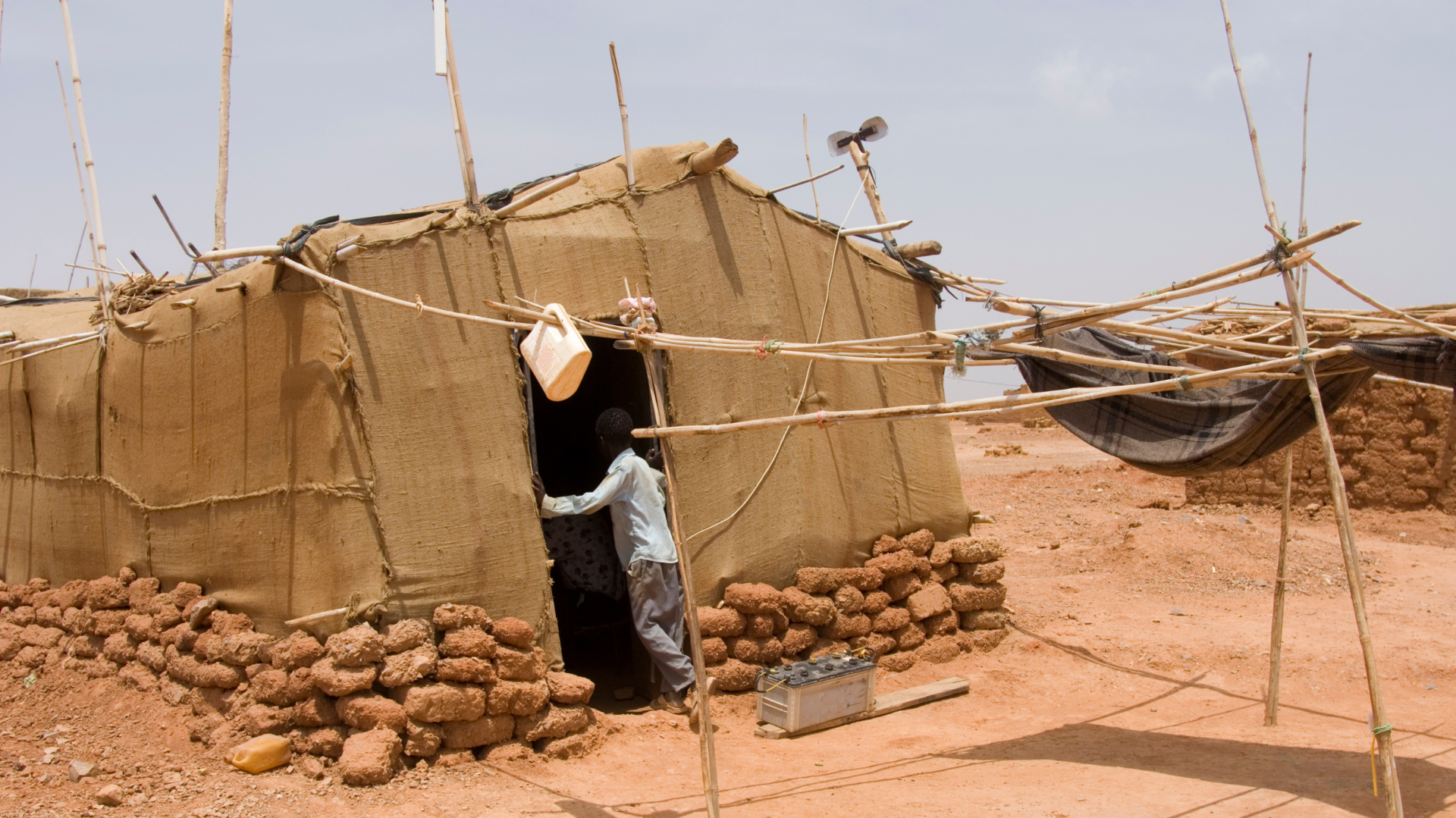
Forced Displacement: A Growing Crisis in Sudan
Sudan Blog Series
One year since conflict erupted between the Sudanese Armed Forces (SAF) and the Rapid Support Forces (RSF), Sudan has quickly become the largest displacement crisis in the world. More than eight million people—including four million children—have been forced to flee their homes, with many displaced multiple times since fighting began.
Over one million people were already living as refugees in Sudan prior to the conflict. Today, a staggering six million people are displaced internally. Those fleeing the country have mainly fled to the neighboring countries of the Central African Republic, Chad, Egypt, Ethiopia, and South Sudan. Consequently, there is extreme variability in the circumstances of those displaced because of differing policies, access to resources, and donor policies within host countries.
Within Sudan, internally displaced people (IDPs) face a severe lack of access to basic resources. The price of fuel, food, and other basic goods has skyrocketed, putting daily necessities even further out of reach. Current projections show nearly 230,000 children, pregnant women and girls, and mothers could die in the coming months due to hunger. At the Zamzam camp in North Darfur, an assessment by MSF found that one child is dying every two hours from malnutrition.
IDPs have also experienced degradation of supply chains of basic goods and loss of critical infrastructure, including destruction of homes, schools, hospitals, water systems, electricity, and communications infrastructure. Access to conflict-affected areas by aid groups is often limited, making these issues difficult to address and leaving IDPs in an increasingly precarious position.
Neighboring Chad has largely kept its border open, welcoming more than 550,000 new Sudanese refugees since the start of the conflict. Today, Chad is facing shortages of critical humanitarian aid and development investment. Chad now hosts over 1.1 million total refugees, making it Africa’s largest host per capita and the largest host of refugees fleeing Sudan. With more refugees expected to cross into Chad in the coming weeks, the lack of access to critical humanitarian aid is at an inflection point and concerns are mounting around social cohesion, dwindling resources, a lack of health care and psychosocial support, and increasing protection risks for displaced populations.
Many of those crossing into neighboring South Sudan are returnees who had been living as refugees in Sudan. Nutrition screening at the Renk transit center between the two countries found a malnutrition rate of 24.5% among children over five, much higher than the World Health Organization’s emergency threshold of 15%. Overcrowding at Renk has exacerbated protection risks with increased indications of physical assault including rape, torture, and mistreatment both at the transit center and along the road.
Programs supporting IDPs, refugees, and returnees are in dire need of attention and support. In partnership with governments, NGOs—including many InterAction Members—have been helping provide food security; protection; access to education; clean water, sanitation, and hygiene; healthcare; gender-based violence services; and other critical programs. But due to funding shortfalls, these programs are not able to reach all of those in need and the funding that does exist is expected to be cut drastically in the coming year. The World Food Program has already had to cut assistance to over seven million people in Chad and South Sudan, including more than 1.2 million refugees. This glaring lack of sufficient humanitarian support undermines the well-being of refugees and hosts alike, threatens social cohesion, and is creating cascading humanitarian crises within the region.
The one-year anniversary of this conflict marks an opportunity for the global community to reignite efforts to aid those displaced in Sudan and work toward meeting their needs. We must take notice before it’s too late.
As organizations working on the frontlines in this volatile crisis, we urge policymakers, including the United States government and all interested parties, to consider the following recommendations:
- The U.S. government should contribute to the United Nations appeal for $4.1 billion to meet the humanitarian needs of civilians in Sudan and support those who fled the conflict to neighboring countries. It is vital that this desperately needed support does not come at the cost of other life-saving programs.
- The U.S. government should advocate for continued safe passage for civilians, especially women, children, and those with disabilities. The U.S. should also exercise its influence on all parties to the conflict to fully respect International Humanitarian Law, as agreed under the Jeddah Declaration of Commitment to Protect the Civilians of Sudan.
- Donors, including the U.S. government, should support social cohesion programming that promotes peaceful coexistence between host communities, the long-standing refugee community, and new arrivals throughout Chad and other neighboring countries. This should take the form of longer-term, development-oriented approaches, which will benefit both refugees and the host community economically and socially. The humanitarian-development-peace nexus approach needs to be implemented effectively to enable a smooth transition from humanitarian work to long-term development initiatives.
- Policymakers must prioritize education for children displaced in Sudan and throughout the region. Sudan faces a generational education crisis, with awaiting school reopening. Action must be taken to prevent the devastating impacts on children’s development and well-being.
About the Authors
Beata Fogarasi is Advisor for Humanitarian Policy at Save the Children U.S.
Giulia McPherson is Vice President of Advocacy & Operations at Jesuit Refugee Service USA.
Kelli Clark is Senior Advocacy Associate for Humanitarian & Emergency at World Vision U.S.
Maryline Njoroge is the Advocacy & Communications Specialist at HIAS.
Noah Gottschalk is Senior Director at HIAS.
* The views expressed in this article are the authors’ own.
—
For information regarding the blog series or InterAction’s Sudan Working Group, please reach out to Mais Balkhi at mbalkhi@interaction.org. For information on the Forced Displacement Working Group, please reach out to Rose Worden at rworden@interaction.org.
For media inquiries, please contact Mitch McQuate at mmcquate@interaction.org.


